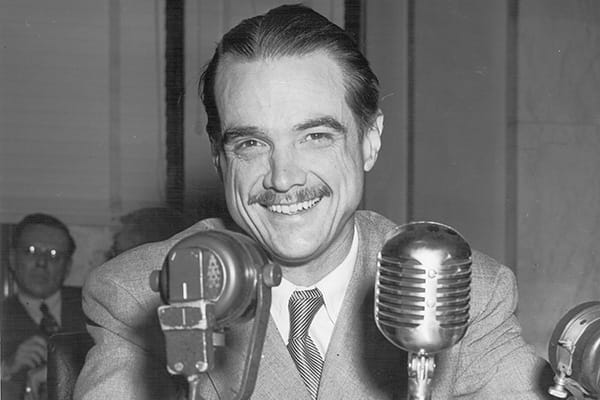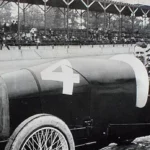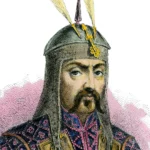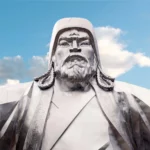Get ready to discover the wild ride of Howard Robard Hughes! He was a guy who was all over the place – a flying whiz who broke records and invented crazy planes, a Hollywood boss who made hit movies, and a more-than-a-little bit secretive guy with some serious personal problems. Dive into the fascinating life of this legend, from his incredible successes to the challenges he faced, and learn how he left a mark on the world that’s still talked about today.
The Enigmatic Howard Hughes
Howard Robard Hughes. The name probably brings to mind images of a reclusive billionaire, perhaps with a touch of madness. Maybe you picture Leonardo DiCaprio in “The Aviator,” battling his demons amidst a backdrop of Hollywood glamour and daring aviation feats. Hughes was undoubtedly an enigma, a man of incredible highs and devastating lows. But who was the real Howard Hughes, beyond the headlines and the Hollywood portrayals? Let’s try to unravel the man behind the myth.
Born into a life of privilege in 1905, young Howard’s world revolved around oil money and boundless opportunity thanks to his family’s fortune, built on the Texas oil boom. However, the tragic loss of both parents during his teenage years left an undeniable mark, shaping him into a solitary and intensely private individual.
Even from a young age, Hughes displayed a remarkable aptitude for all things mechanical, particularly airplanes. Born during the dawn of aviation, he seemed determined to conquer the skies. With his inheritance as a springboard, he dove headfirst into his passions, leaving an undeniable mark on both Hollywood and the world of aviation.
Conquering Hollywood and the Skies
Hughes’s foray into Hollywood was nothing short of explosive. In the 1920s, he stormed onto the scene, a young millionaire with a vision. He poured money into making epic, groundbreaking films like “Hell’s Angels” and “Scarface.” These weren’t just entertainment; they challenged societal norms, pushing the boundaries of what was considered acceptable on the silver screen. Hughes’s drive for control was never more evident than in 1948 when he bought RKO Pictures, not content with simply being a part of the system.
But Hughes’s true love wasn’t the silver screen; it was the open sky. Aviation was his calling, and he wasn’t just along for the ride – he was at the helm, designing and piloting aircraft that seemed like something out of science fiction. He founded Hughes Aircraft Company, a testament to his ambition, and gave the world the H-1 Racer and the awe-inspiring Spruce Goose. These weren’t just airplanes; they were mechanical marvels, solidifying Hughes as a legend in the world of aviation. And if anyone doubted his courage, his record-breaking flight around the world silenced them.
The Price of Ambition
However, with great success often comes a heavy price. The constant pressure, the near-fatal plane crash that left him with chronic pain – it all took its toll. Hughes, the man who seemed invincible, slowly retreated from the public eye. He became increasingly reclusive, his behavior becoming more and more erratic. There’s speculation that he suffered from obsessive-compulsive disorder, a theory given weight by his later years, marked by an almost complete withdrawal from the world.
Howard Hughes’s story isn’t a simple one. It’s a tale of triumph and tragedy, of innovation and isolation. The myths surrounding him, the whispers of madness, often overshadow the remarkable achievements of his life. But when we look beyond the headlines and the Hollywood interpretations, we start to see the real Howard Hughes – a complex, flawed, and utterly captivating individual. His impact on aviation, on film, on our collective imagination – it’s undeniable. Howard Hughes, the man and the myth, continues to fascinate us, reminding us that sometimes, the most extraordinary lives are also the most complicated.
The Hughes Fortune: A Legacy Forged in Oil
Howard Hughes, the name is synonymous with wealth and extravagance. But how did this enigmatic figure amass such a fortune? It wasn’t solely from a silver spoon. Born into wealth in 1905, Hughes inherited a substantial portion of his father’s company, Hughes Tool Company, at the age of 18. This inheritance, stemming from his father’s invention of a revolutionary oil well drill bit, served as the bedrock for Hughes’ future ventures.
While some may attribute his wealth solely to inheritance, Hughes was far from a passive heir. He possessed a keen business acumen and an unyielding drive that propelled him to transform his father’s company into a multi-million dollar enterprise. During World War II, Hughes Tool Company became a major defense contractor, supplying tools and aircraft parts, significantly increasing Hughes’ wealth.
Beyond Inheritance: Building an Empire
But Hughes’ ambitions stretched far beyond the oil industry. He dove headfirst into Hollywood, captivated by the world of filmmaking. Known for his lavish productions and unwavering perfectionism, Hughes financed iconic films like “Hell’s Angels” and “Scarface”, forever etching his name in Hollywood history.
Driven by an insatiable thirst for innovation, Hughes founded Hughes Aircraft Company in 1932, where he designed and piloted record-breaking aircraft like the H-1 Racer. His company soon became a major military contractor, further bolstering his fortune during and after World War II.
Not content with conquering Hollywood and the skies, Hughes set his sights on the burgeoning airline industry. Investing heavily in Transcontinental & Western Air (TWA), he transformed the fledgling airline into a major international carrier, solidifying his position as a business tycoon.
The Reclusive Years: From Mogul to Enigma
In the later years of his life, Hughes retreated from the public eye, becoming increasingly reclusive. While his business empire continued to thrive, his personal life became shrouded in mystery. He grappled with severe OCD, which likely played a role in his withdrawal from society.
When Hughes died in 1976, he left behind a vast fortune, estimated at billions in today’s currency, embroiling his estate in years of legal battles. His life, marked by both remarkable achievements and personal struggles, serves as a testament to the complexities of wealth, ambition, and the human psyche. Howard Hughes remains a captivating figure, a testament to the power of vision, innovation, and the enduring allure of a life shrouded in mystery.
The Final Flight: Unraveling the Death of an Icon
Howard Hughes, the enigmatic aviator, film producer, and business magnate, died on April 5, 1976, at the age of 70. His death, like his life, was shrouded in mystery and speculation. While the official cause of death was attributed to kidney failure, the circumstances surrounding his passing painted a picture of declining health exacerbated by a complex interplay of physical and psychological factors.
By the time of his death, Hughes had become a recluse, his once larger-than-life persona receding into a world of private anguish and isolation. He was battling severe obsessive-compulsive disorder (OCD), a condition that likely contributed to his withdrawal from public life and significantly impacted his physical health.
An autopsy revealed a body ravaged by years of neglect and the toll of his condition. Hughes, once a symbol of vitality and ambition, was severely malnourished, weighing a mere 93 pounds. Evidence suggested potential drug abuse, with needle marks found on his emaciated body. Furthermore, the autopsy revealed improperly healed broken bones, suggesting a reluctance to seek proper medical treatment, perhaps stemming from his OCD.
A Life of Triumph and Tragedy
Hughes’s later years stand in stark contrast to the triumphs of his earlier life. He had achieved incredible success in Hollywood, revolutionized the aviation industry, and amassed a vast fortune. But behind the façade of wealth and achievement, Hughes was fighting a losing battle against his inner demons.
His death, shrouded in mystery, sparked numerous conspiracy theories, a testament to the intrigue surrounding his reclusive lifestyle and the lingering questions about his final years. While kidney failure is the official cause of death, it was likely a culmination of factors, including malnutrition, dehydration, possible drug abuse, and the physical deterioration brought on by his untreated OCD.
The life and death of Howard Hughes serve as a cautionary tale, a reminder that even amidst extraordinary success, mental illness can cast a long and devastating shadow. His legacy, forever etched in the annals of history, continues to fascinate, reminding us that behind the dazzling lights of fame and fortune often lies a much more complex and ultimately human story.
Defining a Legacy: What Howard Hughes is Most Known For
Howard Hughes was more than just a billionaire; he was a force of nature who left an indelible mark on multiple industries. While his later years were defined by reclusiveness and eccentricity, his legacy rests firmly upon his groundbreaking achievements in aviation and film, as well as his business acumen that helped shape the landscape of 20th-century America.
1. Aviation Pioneer:
Hughes’s passion for aviation knew no bounds. He was an accomplished pilot who personally broke several airspeed records, pushing the limits of what was possible in the air. In 1932, he founded Hughes Aircraft Company, which became a breeding ground for innovative aircraft design.
- The H-1 Racer: This sleek, record-breaking aircraft exemplified Hughes’s commitment to pushing technological boundaries.
- The H-4 Hercules (“Spruce Goose”): This massive flying boat, while only flown once, became a symbol of Hughes’s audacious vision and engineering prowess. It remains the largest flying boat ever built.
- Awards and Recognition: His contributions to aviation earned him prestigious awards, including:
- The Harmon Trophy (twice): Recognizing outstanding international achievements in aviation.
- The Collier Trophy: Awarded for outstanding achievements in American aviation.
- The Congressional Gold Medal: The highest civilian honor bestowed by the United States Congress.
2. Hollywood Maverick:
Hughes’s impact on Hollywood was equally profound. He was a visionary film producer in the 1920s and 1930s, known for his extravagant productions and groundbreaking films that challenged the norms of filmmaking.
- Pushing Cinematic Boundaries: Films like “Hell’s Angels” (1930) set new standards for aerial stunt work and captivated audiences with their epic scale.
- Courting Controversy: “Scarface” (1932), with its gritty depiction of gangster life and violence, sparked national controversy and censorship battles, forever changing the landscape of American cinema.
- The RKO Years: His acquisition of RKO Pictures in 1948, while ultimately troubled, showcased his ambition and desire to control the creative process.
3. Business Magnate:
Beyond his passions for aviation and film, Hughes possessed a keen business sense that allowed him to amass a vast fortune and leave his mark on several industries.
- Transforming Hughes Tool Company: Under his leadership, the company his father founded became a major player in the oil industry and a vital defense contractor during World War II.
- Reshaping TWA: His investment in and eventual takeover of TWA transformed the airline into a major international carrier.
- Shaping Las Vegas: Hughes’s real estate investments and casino acquisitions in the 1960s played a significant role in Las Vegas’s transformation from a desert gambling town into a global entertainment destination.
4. A Legacy of Contradictions:
While his achievements are undeniable, Hughes’s legacy remains complex. His later years were marked by reclusiveness, fueled by his struggles with OCD and a growing distrust of the world. While his eccentricities often overshadowed his accomplishments, they are also inseparable from the man who dared to dream so big.
Howard Hughes was a study in contrasts: a visionary and an eccentric, a pioneer and a recluse. He was a man of incredible ambition and drive, yet ultimately undone by his inner demons. His enduring legacy lies not only in the records he broke and the empires he built but also in the enduring fascination he continues to inspire – a testament to the enduring power of a life lived on his own terms.
- Unveiling the Enigma: Mansoureh Khojasteh Bagherzadeh’s Public Appearances & Private Life in Iran - July 18, 2025
- Unveiling the Mystery: Mansoureh Khojasteh Bagherzadeh’s Husband: A Rare Glimpse into a Private Life - July 18, 2025
- Unveiling Masoud Khamenei’s Mother: Power, Influence, and Iran’s Future - July 18, 2025
















